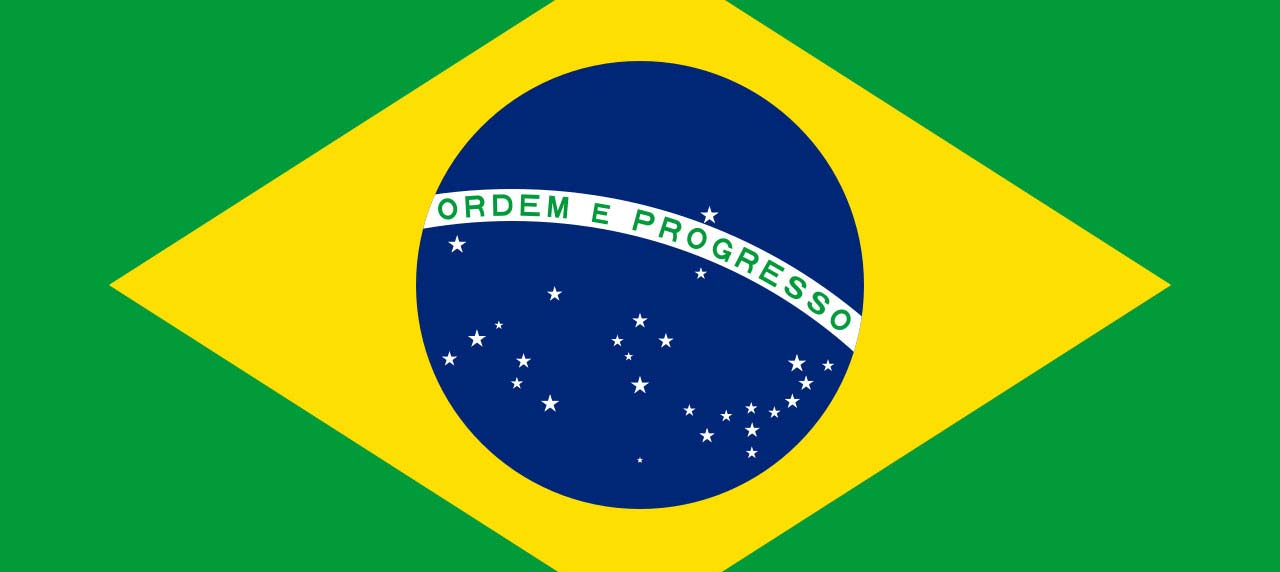Added to the Brazilian (Portuguese) edition of Letters From an Astrophysicist.
Dear Brazil,
Of my many trips to South America, I’ve never had the occasion to visit you. Most were to the Andes Mountains, to observe the magnificent southern skies via an international consortium of high-tech telescopes. But I’ve nonetheless thought about you quite often.
As a native of the United States of America, I know what we casually think about you. In no particular order, you’ve got the world’s largest, and most important rain forest. You’ve got the world’s most massive river, every minute, draining into the Atlantic Ocean a volume of water that would fill a football stadium. And yes, we knew about your river and rain forest long before Amazon.com borrowed the name.
Want more? Nobody doesn’t love Brazil nuts. In fact, in the USA, we have to spring for the “premium” package to get them in our mixed nuts. And even those among us who barely follow soccer know of your famous football teams, fully expecting to see you in the final rounds of the World Cup every four years. We also know about your stunning beaches because they’ve appeared in song—“The Girl/Boy from Ipanema” among them. We know about your religious festivals, Mardi Gras especially, as we attempt to imitate the intensity and joy of those celebrations—in dance and in music—on our side of the hemisphere. We know about your coffee. And I, for one, love your flag. It’s got a slice of the night sky on it; no fewer than two-dozen stars, each retrace authentic constellations, the Southern Cross included.
So, if you asked any of us in the USA what we think when your name gets mentioned, we typically draw from that list.
You know what we don’t notice? Half the time we fly a regional jet between cities, on American Airlines and other carriers, we board an Embraer to do so. Sure, the safety card says Embraer on it. We might even find the name in small print somewhere on the fuselage. But hardly any of us knows that the airplane is designed and built in Brazil. You could boast “Brazilian Engineering” but you don’t. Why not? Germany has no hesitation embracing that claim. But, of course, they’ve earned it. Everyone knows the quality of German-engineered products, which happens to infuse their aerospace economy, the third largest in the world.
But wait. One of the greatest pioneers in early aviation was Brazilian. A brilliant and inventive engineer who was highly decorated in his time, Alberto Santos-Dumont guided the world’s transition from lighter-than-air to heavier-than-air transportation. The value of such cultural seeds, planted at the birth of an industry, may be incalculable. A century later, you have become a leader in biofuel technologies—a key step towards a green economy where our harmony with nature will determine whether we thrive, survive, or go extinct. You also have an ambitious space agency, and you are the sixth largest aerospace industry in the world. In Latin America, you are also a leader in IT. And in a country famous for its agriculture, nearly a third of your economy rides on the back of a tech-infused manufacturing sector.
So maybe it’s time the world knew more about this. Maybe it’s time Brazilians knew more about this. Maybe you are overdue for displaying products that declare: “Engineered in Brazil.”
Whatever else is, or is not, true in the world, tomorrow’s growth economies—even those that may be purely agricultural—will pivot on today’s investments in science, technology, engineering, and mathematics. In a democracy, these investments flow from a scientifically literate electorate that chooses enlightened leaders who know and understand the value of education, of exploration, and discovery. Without these perspectives, we’d all still be living in caves, with fellow dwellers grunting: “You can’t explore outside. First you must solve our cave problems.”
Lest anyone forget, the first (and only) South American astronaut, an aeronautical engineer, was Brazilian. And when did he launch? In 2006, the centennial year of Santos-Dumont’s first successful airplane. And what did he bring to space with him? The Brazilian Flag, and a jersey from your national football team.
Countries that struggle the most in the world tend to be those with low education levels and an absence of STEM in their culture. You have the resources and the legacy to lead all of Latin America, if not the world, in what a country of tomorrow should be—in what a country of tomorrow should aspire to.
If you embrace and bolster your STEM industries—and the entire tech sector—then the dreams of students in the educational pipeline will have no limit, as they enter a world where rockets are what fuel people’s ambitions as they exit the cave door.
Respectfully Submitted,
Carta Para o Brasil
Para a edição brasileira de Respostas de um astrofísico.
Caro Brasil,
Das minhas muitas viagens à América do Sul, nunca tive a oportunidade de visitar você. A maioria delas teve como destino a cordilheira dos Andes, com o objetivo de observar o magnífico céu do hemisfério sul através de telescópios de alta tecnologia de um consórcio internacional. Mas, mesmo assim, tenho pensado em você com bastante frequência.
Como nativo dos Estados Unidos da América, sei em que costumamos pensar quando se trata de você. Não seguindo uma ordem específica, você possui a maior e mais importante floresta tropical do mundo. Você abriga o maior rio do mundo, que, a cada minuto que passa, escoa para o oceano Atlântico um volume de água que daria para encher um estádio de futebol. E, sim, nós sabíamos da existência de seu rio e de sua floresta tropical muito antes de a Amazon.com1 pegar o nome emprestado.
Quer mais? Não há quem não goste de castanha-do-brasil2. Na verdade, nos EUA, nós precisamos pagar pelo pacote “premium” para que elas venham incluídas em nossos mix de castanhas. E mesmo aqueles de nós que quase não acompanham futebol sabem da existência de seus times famosos, ficando na maior expectativa de ver você na final da Copa do Mundo a cada quatro anos. Também sabemos das suas praias deslumbrantes pelas músicas que as cantam—a “Garota de Ipanema” sendo uma delas. Sabemos de suas festas populares, principalmente o Carnaval, e tentamos imitar a intensidade e a alegria dessas celebrações—com dança e música—aqui no nosso hemisfério. Sabemos do seu café. E eu, particularmente, amo a sua bandeira. Há um pedaço do céu noturno estampado nela; mais de duas dezenas de estrelas retraçam constelações autênticas, incluindo o Cruzeiro do Sul.
Então, se você perguntasse a qualquer um de nós nos EUA o que vem à nossa cabeça quando seu nome é mencionado, normalmente selecionaríamos algo a partir dessa lista.
Você sabe do que nós não nos damos conta? Metade das vezes que embarcamos em voos domésticos, da American Airlines ou de outras companhias aéreas, viajamos num avião da Embraer. Tudo bem, o folheto com instruções de segurança traz impresso nele o nome Embraer. Nós podemos até achar Embraer escrito em letras miúdas em algum lugar da fuselagem. Mas quase nenhum de nós sabe que a aeronave é projetada e fabricada no Brasil. Você poderia alardear “Tecnologia Brasileira,” mas não o faz. Por que não? A Alemanha não hesita em se gabar da dela. Nada mais justo, claro. Todo mundo conhece a qualidade dos produtos fabricados na Alemanha, que, por sua vez, permeiam sua economia aeroespacial, a terceira maior do mundo.
Mas, espere. Um dos grandes pioneiros nos primórdios da aviação era brasileiro. Engenheiro brilhante e inventivo, altamente condecorado, Alberto Santos-Dumont liderou a transição mundial do transporte aéreo mais leve que o ar para o mais pesado que o ar. O valor de uma semente cultural como essa, plantada no nascimento de uma indústria, é incalculável. Um século depois, você se tornou líder em tecnologias de biocombustíveis—um passo fundamental em direção a uma economia verde onde nossa harmonia com a natureza vai determinar se iremos prosperar, sobreviver ou nos extinguir. Você também possui uma ambiciosa agência espacial, além de ser a sexta maior indústria aeroespacial do mundo. Na América Latina, você também é líder em Tecnologia da Informação. E num país famoso por sua agricultura, quase um terço de sua economia se apoia num setor produtivo impregnado de tecnologia.
Então talvez seja a hora de o mundo saber mais a respeito disso. Talvez seja a hora de os brasileiros saberem mais sobre isso. Talvez esteja mais do que na hora de você exibir produtos que declarem: “Fabricado no Brasil.”
Seja o que mais for, ou não, verdade no mundo, as economias de crescimento do futuro—mesmo as que possam ser puramente agrícolas—vão girar em torno dos investimentos feitos hoje em ciência, tecnologia, engenharia e matemática. Numa democracia, esses investimentos fluem de um eleitorado letrado cientificamente, que elege líderes esclarecidos e que entendem o valor da educação, das pesquisas e das descobertas. Sem essas perspectivas, ainda estaríamos vivendo em cavernas, com alguns de nós resmungando: “Você não pode explorar o mundo exterior. Primeiro precisa resolver os problemas da nossa caverna.”
Para que ninguém se esqueça, o primeiro (e único) astronauta sul-americano foi um engenheiro aeronáutico brasileiro. E quando se deu o lançamento de sua missão? Em 2006, ano do centenário do primeiro avião bem-sucedido de Santos-Dumont. E o que ele levou para o espaço? Uma bandeira do Brasil e uma camisa da seleção brasileira de futebol.
Os países que mais passam por dificuldades no mundo tendem a ser aqueles com baixos níveis de instrução e com ausência de STEM3 em sua cultura. Você tem os recursos e o legado para liderar toda a América Latina, se não o mundo, no que um país do futuro deveria ser—no que um país do futuro deveria aspirar ser.
Se você abraçar e apoiar suas indústrias STEM—e o setor de tecnologia inteiro—então os sonhos dos alunos em toda a cadeia educacional não terão limites, conforme eles forem introduzidos num mundo em que foguetes são o que alimentam as ambições das pessoas que saem pela porta da caverna.
Atenciosamente,
- 1 Amazon é a palavra em inglês tanto para Amazonas quanto para Amazônica. (N. do T.)
- 2 Também chamada de castanha-do-pará. (N. do T.)
- 3 STEM é a sigla em inglês para Science, Technology, Engineering e Mathematics [Ciência, Tecnologia, Engenharia e Matemática] (N. do T.)
Translators: Nicolas Pettengill & Renata Pettengill
Publisher: Grupo Editorial Record



